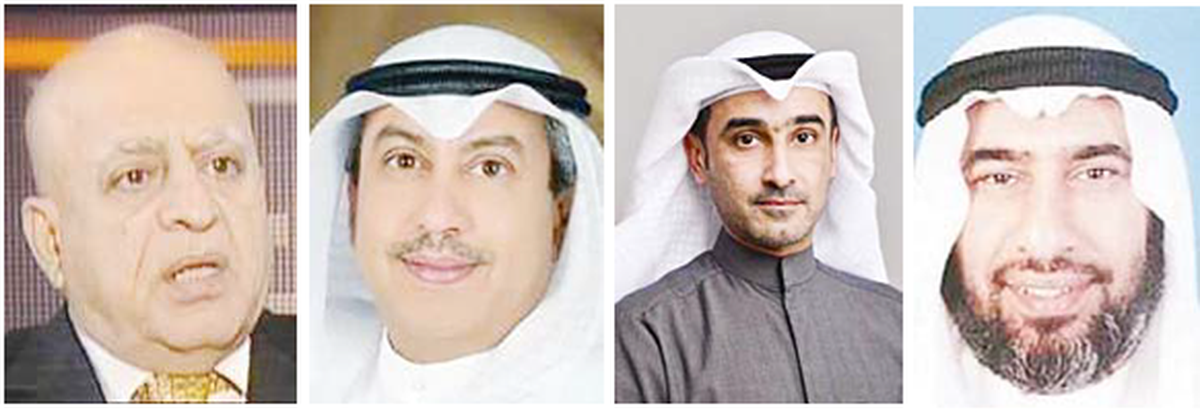21/08/2025
21/08/2025

They argued that legalizing alcohol would reduce illegal production and the dangerous chemical compounds it often contains, which can severely harm human health or even lead to death, as seen in this recent incident. Meanwhile, the opposing group insisted that Kuwait is an Islamic country, and the sale of alcohol is strictly prohibited under any circumstances.

In this regard, journalist Ahmed Al-Sarraf voiced support for tightly regulated permission to sell alcohol in the country, indicating that it is already present, sold, and manufactured illegally. He asked, “Why do we bury our heads in the sand and pretend otherwise?” Al-Sarraf explained that several Gulf states, despite sharing customs, traditions, religion, and language with Kuwait, permit the sale of alcohol. Allowing the sale of alcohol would eliminate fraud, smuggling, and its secret manufacture. Legalizing it would protect people from consuming unsafe, unregulated products and would curb inflated prices, especially since the black-market “mafia” exploits the ban to charge exorbitant rates. Such matters must be dealt with realistically and rationally.
Al-Sarraf asked, “Are we more Islamic than the neighboring Gulf states that permit the consumption of alcohol?” He also highlighted that alcoholic beverages are already consumed by foreign diplomats. Furthermore, Al-Sarraf stressed that the continued ban on alcohol contributes to rising corruption and the growing spread of drugs, which are far more harmful than alcohol.
Al-Rasheed explained that the state’s repeated seizures of alcohol clearly indicate the existence of a significant segment of society that consumes these products. This underscores the need to reopen this file, especially in light of the rising number of seizures and the growing rates of alcohol consumption. The government must open this topic for public and societal discussion, particularly as the increasing rates of addiction in Kuwait signal potentially dire consequences. As evidence, he pointed to alarming data from the Addiction Treatment Center at the Psychiatric Medicine Hospital, which reflects a concerning rise in addiction cases. Given that permitting alcohol might actually help reduce addiction to more harmful substances, he wondered why not consider allowing it.
Meanwhile, Lawyer Ali Al-Attar strongly opposed the proposal to legalize alcohol in Kuwait, rejecting any notion of following the example of some Gulf countries or others that permit its sale. He argued that the issue of rising crime and traffic accidents is not necessarily linked to addiction rates. Lawyer Al-Attar called for the complete rejection of the idea, emphasizing that Islamic teachings, along with Kuwait’s customs, traditions, and social norms, categorically prohibit alcohol. He stressed that the tragic cases of poisoning and death caused by toxic homemade substances should not be used as justification to violate Islamic law and legalize something that is fundamentally forbidden.
Furthermore, Islamic preacher Sheikh Saleh Al-Ghanim emphasized that Islam strictly prohibits the consumption of alcohol, stating clearly that it is forbidden (haram). He said if any Islamic country permits the sale of alcohol, that is its own decision, and not a justification for others to follow suit. Sheikh Al-Ghanim pointed to clear Qur’anic verses and prophetic hadiths that forbid the drinking, possession, and trade of alcohol. Meanwhile, an internal medicine specialist, who requested anonymity, explained that adulterated alcohol is often made using toxic substances such as methanol and ethylene, along with other harmful chemicals that pose serious health risks. He explained that methanol, in particular, is highly dangerous and can lead to rapid death, as it is composed of carbon and hydrogen compounds that are toxic to the human body.
Methanol, along with other toxic substances, destroys the digestive system and has a dangerous impact on the nervous system, which can even lead to death, such as in the recent case where 23 people died after consuming poisoned alcohol. Some alcoholic products manufactured in Kuwait are repackaged and falsely labeled as “Made Abroad” to deceive consumers, especially since alcohol sales increase significantly during Christmas and New Year’s time. Many Asian, European, and Arab communities tend to be heavier consumers of alcohol during these times.
Al-Seyassah/Arab Times Staff


